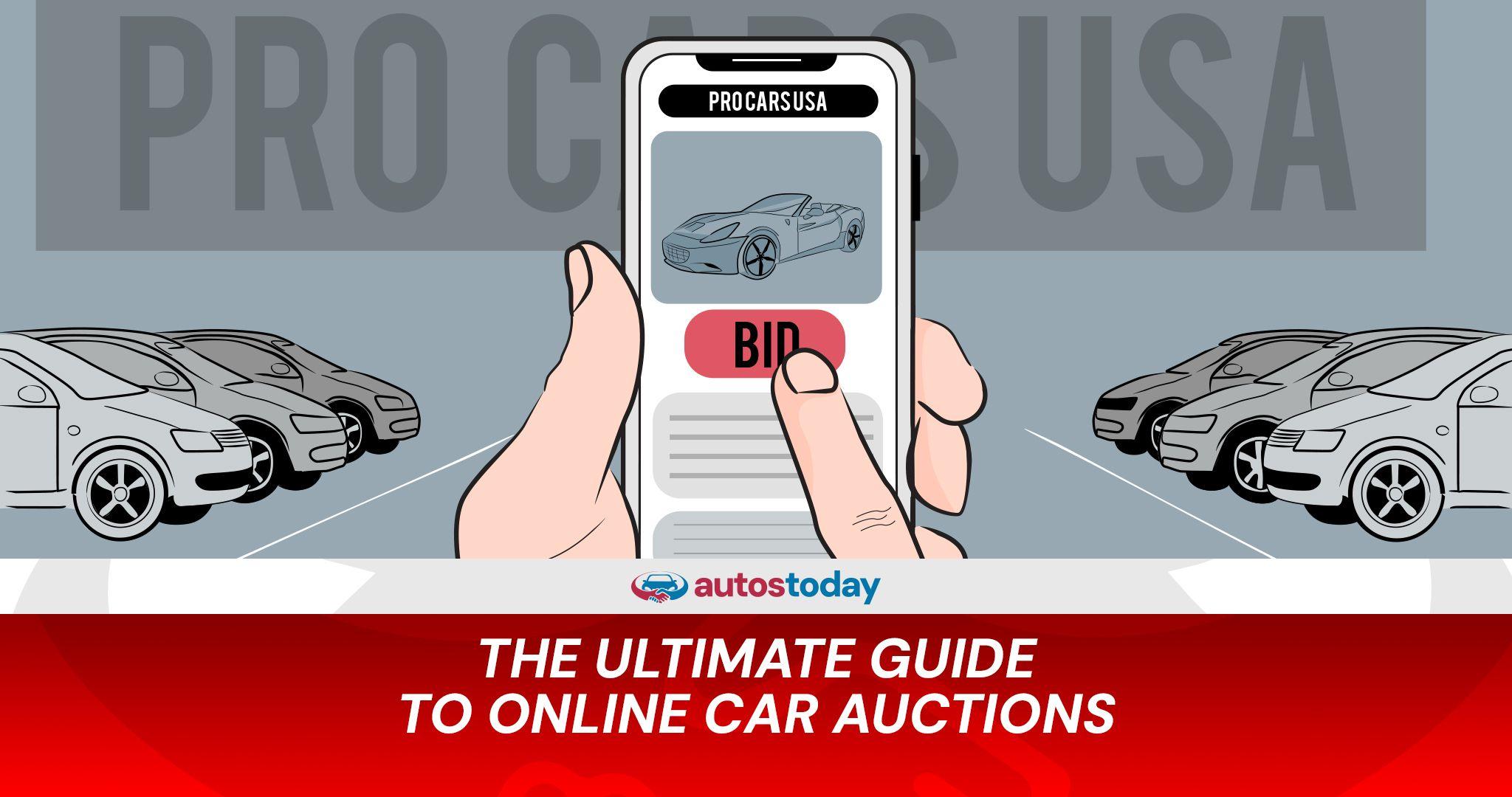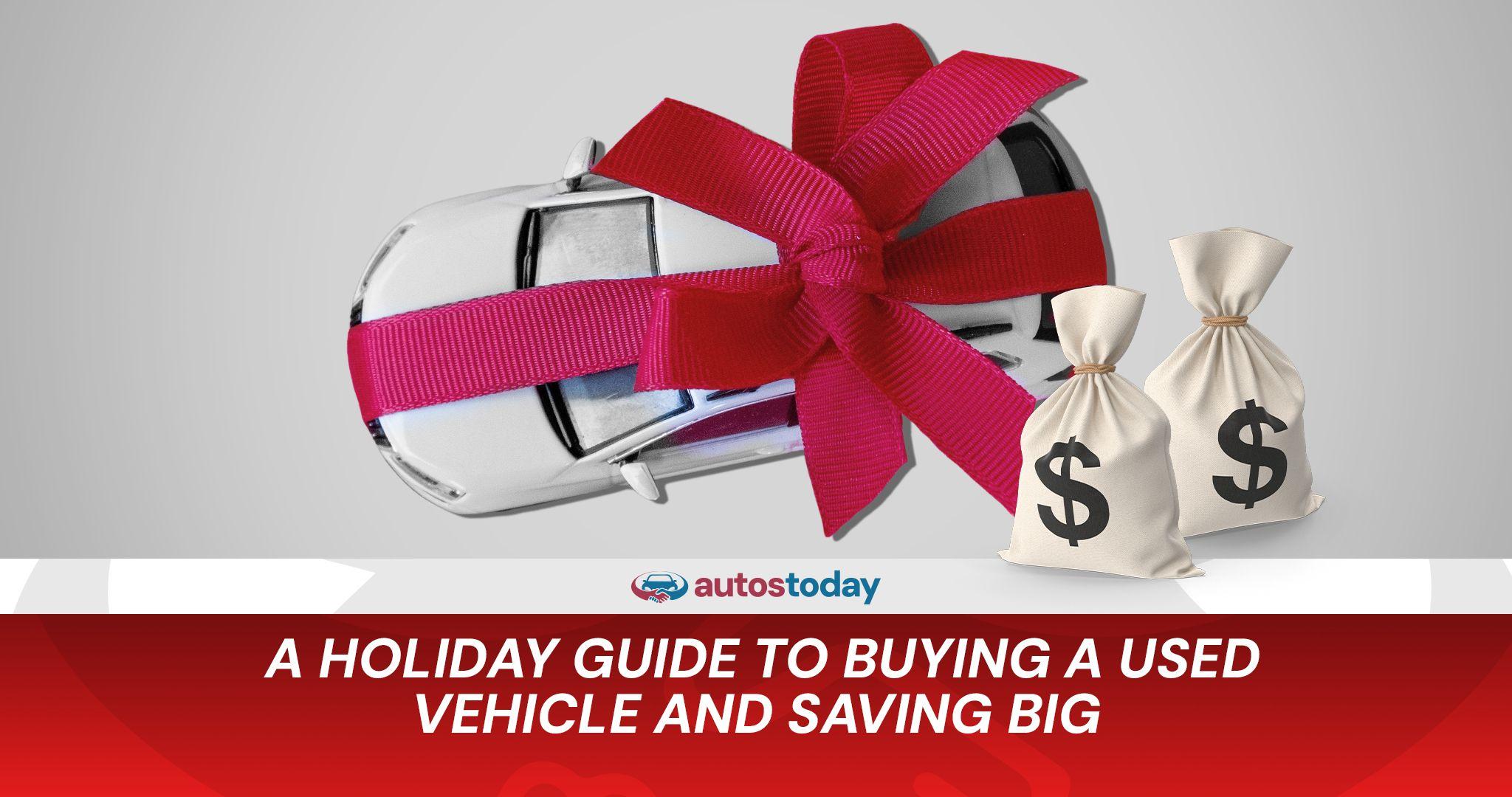The Ultimate Guide to Online Car Auctions
Published on Feb 13, 2025 • 5 min read

Buying a car through online car auctions opens the door to a vast selection of vehicles from the comfort of your home. Whether you're searching for a reliable commuter car, a luxury vehicle, or a rare classic, these platforms make it easier than ever to compare options and secure a great deal. The key is to approach the process strategically, focusing on research, budgeting, and careful bidding to maximize your chances of success.
1. Research and Identify the Right Car
Start by defining what you want in a car. Think about the make, model, year, and key features that matter most to you. Online car auctions offer advanced search filters that can help narrow down your options based on mileage, condition, and price.
A family looking for a dependable SUV might use search tools to prioritize vehicles with low mileage and high safety ratings. By clearly outlining your preferences, you avoid feeling overwhelmed by the sheer number of listings.
Don't forget to check user reviews for models that interest you. Real-world feedback often reveals how well a car performs beyond its initial specifications.
2. Set a Realistic Budget
Establish a clear budget before placing any bids. Online car auctions are known for competitive prices, but bidding can quickly become emotional when multiple buyers show interest in the same vehicle. Consider not just the final bid amount but also the additional costs like taxes, registration, and potential repairs.
If you set your budget at $15,000, make sure you've accounted for these extra expenses. Some platforms provide cost estimators to help you plan more accurately.
3. Inspect Listings and Check Vehicle History
Since you can’t inspect cars in person during an online auction, you need to rely on the available images and reports. Pay close attention to photos that show wear and tear. If the listing offers a vehicle history report, review it carefully to check for past accidents, title issues, or odometer inconsistencies.
A buyer once avoided purchasing what seemed like a pristine sedan after noticing subtle damage near the frame in the pictures. The vehicle history report later confirmed it had been involved in a major collision. This kind of diligence can save you from expensive surprises down the road.
4. Participate in Auctions with a Clear PlanOnline car auctions move quickly, so preparation is crucial. Set a maximum bid based on your research and stick to it. While it can be tempting to outbid competitors, emotional decisions often lead to overspending.
One strategy is to place bids strategically during off-peak hours when competition tends to be lower. Watch the behavior of other bidders to understand the pace of the auction and avoid bidding too early if the auction format allows.
By researching carefully, budgeting smartly, and bidding with discipline, you increase your chances of walking away with a quality vehicle at the right price.
Car Selling: Maximizing Your Returns
Selling your car through online car auctions can connect you with a larger pool of potential buyers than traditional methods. These platforms offer tools to help you list, price, and sell your vehicle more efficiently. By focusing on accuracy, pricing strategies, and clear communication, you can maximize your returns and complete the sale smoothly.
1. Create a Detailed, Transparent Listing
A well-crafted listing is essential for attracting buyers. Start by describing your car accurately, including its make, model, year, mileage, and notable features. High-quality photos from multiple angles help buyers evaluate the vehicle’s condition remotely.
Avoid exaggerating or omitting known issues. When buyers feel confident in the listing’s honesty, they are more likely to place competitive bids.
2. Set a Competitive, Data-Driven Price
Pricing your car correctly is crucial for attracting serious buyers. Online car auctions offer tools to compare similar listings and track real-time market trends. Use these resources to determine a fair, competitive price that reflects your car’s value without deterring potential bidders.
If recent auction results show that similar sedans sell for around $12,000, pricing your car slightly below that figure may generate more interest. Just make sure the price aligns with the car’s condition and market demand.
3. Communicate Promptly and Professionally
Once your listing goes live, expect inquiries from potential buyers. Respond to questions quickly and provide additional details when requested. Clear, professional communication not only builds trust but can also lead to faster sales.
A seller who responded within minutes to a buyer's request for maintenance records secured a sale that same day. The quick, transparent interaction gave the buyer the confidence to commit without hesitation.
4. Handle Payment and Documentation Securely
Finalizing the sale requires attention to payment and paperwork. Online car auctions often recommend using secure payment methods like escrow services to protect both parties. Avoid accepting payments through unfamiliar or unverified channels.
Prepare necessary documents in advance, including the title transfer, bill of sale, and any required state forms. Double-check that all information is accurate to prevent delays. When the paperwork is complete, notify the buyer and confirm that the payment has cleared before releasing the car.
Car Trading: Navigating the Exchange
Trading a car through online car auctions offers a convenient way to upgrade your vehicle without going through the hassle of separate selling and buying processes. By understanding your car's value, choosing the right platform, and negotiating smartly, you can trade with confidence and efficiency.
1. Evaluate Your Car's Trade-In Value
Before starting the trade-in process, get a clear picture of your car's market value. Many online car auction platforms provide tools that help you estimate trade-in value based on factors like make, model, year, and condition.
For example, a car owner hoping to trade in a five-year-old sedan used a valuation tool and discovered the vehicle's value was higher than expected due to increased demand for reliable, fuel-efficient cars. Armed with this information, they negotiated a better deal on their next car.
If possible, supplement online estimates with a professional appraisal to confirm the accuracy of the valuation.
2. Choose a Trusted Online Car Auction Platform
Not all auction platforms handle car trades the same way. Look for a platform that clearly outlines its trade-in process, fees, and requirements. User reviews can offer insight into how smoothly the process runs and whether previous users were satisfied with their trade-in experiences.
Some platforms like AutosToday, offer streamlined tools that let you apply your car's trade-in value directly toward the purchase of another vehicle. Others may require you to sell your car first, and then use the funds for a new purchase. Understanding these differences helps you avoid confusion and unexpected costs.
3. Negotiate Based on Market Insights
Once you have a reliable estimate of your car's trade-in value, use that information to negotiate effectively. Online car auctions often provide access to recent sale data, allowing you to compare similar trades and gauge the fairness of any offers you receive.
Imagine a driver trading in a well-maintained truck. By reviewing recent auction results, they noticed that trucks of the same make and model were consistently selling for more than the initial trade-in offer. Presenting this data to the buyer helped them secure a better deal.
Stay firm if the offer falls significantly below market value, but remain open to reasonable counteroffers to close the deal efficiently.
4. Finalize the Trade Securely
When both parties agree on the terms, it's time to finalize the trade. Make sure all paperwork is completed accurately, including the title transfer and any required state forms. Online car auction platforms often provide step-by-step guidance to simplify this process.
Before releasing your car, confirm that the payment or trade-in credit has been processed correctly. Reliable platforms use secure payment methods to protect both buyers and sellers during the transaction.
Embracing the Future of Automotive Transactions
Online car auctions have transformed how people buy, sell, and trade cars. What once required in-person visits and endless paperwork can now be done quickly and conveniently from anywhere.
Preparation remains key. By researching, budgeting, and staying disciplined during bidding, you can navigate online car auctions with confidence. The future of car transactions is here, and it is more accessible than ever.
Frequently asked questions
1. What are online car auctions?
Online car auctions are virtual marketplaces where you can buy, sell, or trade vehicles from the comfort of your home. These platforms list a wide variety of cars, including everyday sedans, luxury vehicles, and classic models. Bidding takes place online, and the highest bidder wins the auction.
2. How do I participate in an online car auction?
To join an online car auction, you'll typically need to create an account, provide identification documents, have payment information ready, verify your identity, and agree to the platform's terms. Once registered, you can browse listings, place bids, and track auctions in real time. Make sure you review the rules and fees before participating.
3. Is it safe to buy a car through an online auction?
Yes, buying a car through an online auction can be safe if you choose reputable platforms and follow precautions. Consider checking Better Business Bureau ratings to verify the platform's credibility. Look for websites with strong customer reviews and secure payment options, like escrow services. Always review vehicle history reports and check images carefully before placing a bid.
4. How do I set a budget for an online car auction?
Start by determining how much you can afford to spend. Consider checking financing options if needed. Don’t forget to factor in additional costs like taxes, registration fees, and potential repairs. Many platforms offer budgeting tools or cost calculators to help you plan more accurately.
5. Can I inspect a car before buying it online?
Since online auctions don't allow in-person inspections, consider using third-party inspection services for added security, you'll need to rely on the photos and vehicle history reports provided. Pay attention to any signs of damage and check for inconsistencies in the car's history, such as accident records or odometer discrepancies.
6. What happens if I win an auction?
If you win an auction, the platform will guide you through the next steps, which typically include making a secure payment, signing paperwork, and arranging for delivery or pickup. Make sure to follow the platform’s instructions to avoid delays.
7. How can I sell my car through an online car auction?
To sell your car, create a listing with detailed information, high-quality photos, and an accurate description of the vehicle's condition. Set a competitive price based on recent auction results and be prepared to answer potential buyers' questions.
8. What’s the difference between buying from a dealer and through an online auction?
Dealers often offer cars with warranties and pre-inspection services, but prices tend to be higher. Online auctions provide a wider selection of vehicles at competitive prices, though buyers must conduct more independent research.
9. Can I trade my car using an online car auction?
Yes, many online platforms offer car trade-in services. You'll need to provide your car's details to receive a trade-in estimate. Some platforms allow you to apply this value directly to a new car purchase.
Related Articles

Navigating the Vehicle Marketplace: Why Autostoday?
Online platforms have revolutionized the way we buy, sell, and trade cars.
Nov 28, 2024 • 3 min read

Make Your Best Buy Ever
We've curated the absolute best of online buying tips.
Dec 4, 2023 • 2 min read

A Holiday Guide to Buying a Used Vehicle and Saving Big
The end of the year marks a significant surge in car purchases
Feb 13, 2025 • 5 min read

Unlock January’s Best Auto Deals
January: Ideal time to buy a car online - price benefits and great deals.
Jan 9, 2025 • 3 min read